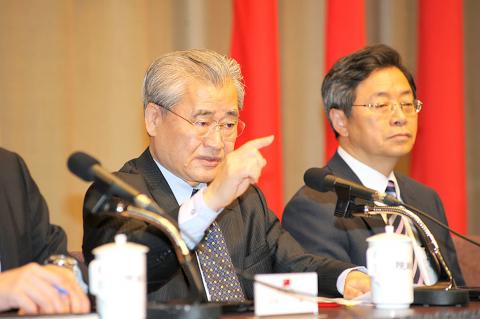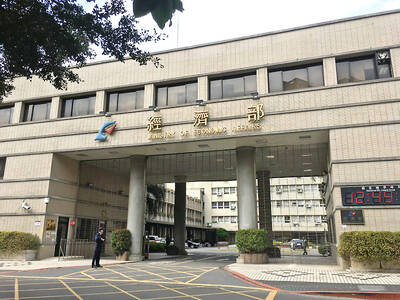Taiwan’s working-age population is expected to decline by 180,000 next year, Premier Mao Chi-kuo (毛治國) said yesterday, underscoring the need for a policy overhaul to meet new challenges.
“The seriousness of the demographic shrinking deserves serious attention,” Mao told a press conference after the weekly Cabinet meeting.
Citing research by the National Development Council, Mao said the nation’s working-age population — people aged 15 to 65 — is expected to reach its peak this year at 17 million.

Photo: CNA
Taiwan had a total population of 23.4 million as of last month.
“The council estimated that the working population would decrease at a rate of 180,000 per year starting next year, which would add up to 1.8 million people in 10 years,” Mao said, describing the pace of the decline as a “steep, parabolic” curve.
An aging society and a falling birthrate require new thinking in formulating policies, ranging from economic development to industrial structure, education, social welfare and childcare, Mao said.
In addition to a series of measures in place to construct a healthy environment to encourage more people to have children, the government needs to create a decent work environment and conditions to increase labor participation, as well as refine its immigration policy to increase the workforce, the premier said.
The council estimated that Taiwan’s population would peak at about 23.5 million or 23.6 million between 2019 and 2026.
The council said that Taiwan would become an aged society, in which people aged 65 or older account for at least 14 percent of the population, in 2018, and enter a super-aged society in 2025 when more than 20 percent of the population is composed of people aged 65 or above.
Taiwan became an aging society in 1993, when the demographic accounted for 7 percent of the population.

LIMITS: While China increases military pressure on Taiwan and expands its use of cognitive warfare, it is unwilling to target tech supply chains, the report said US and Taiwan military officials have warned that the Chinese People’s Liberation Army (PLA) could implement a blockade within “a matter of hours” and need only “minimal conversion time” prior to an attack on Taiwan, a report released on Tuesday by the US Senate’s China Economic and Security Review Commission said. “While there is no indication that China is planning an imminent attack, the United States and its allies and partners can no longer assume that a Taiwan contingency is a distant possibility for which they would have ample time to prepare,” it said. The commission made the comments in its annual

DETERMINATION: Beijing’s actions toward Tokyo have drawn international attention, but would likely bolster regional coordination and defense networks, the report said Japanese Prime Minister Sanae Takaichi’s administration is likely to prioritize security reforms and deterrence in the face of recent “hybrid” threats from China, the National Security Bureau (NSB) said. The bureau made the assessment in a written report to the Legislative Yuan ahead of an oral report and questions-and-answers session at the legislature’s Foreign Affairs and National Defense Committee tomorrow. The key points of Japan’s security reforms would be to reinforce security cooperation with the US, including enhancing defense deployment in the first island chain, pushing forward the integrated command and operations of the Japan Self-Defense Forces and US Forces Japan, as

‘TROUBLEMAKER’: Most countries believe that it is China — rather than Taiwan — that is undermining regional peace and stability with its coercive tactics, the president said China should restrain itself and refrain from being a troublemaker that sabotages peace and stability in the Indo-Pacific region, President William Lai (賴清德) said yesterday. Lai made the remarks after China Coast Guard vessels sailed into disputed waters off the Senkaku Islands — known as the Diaoyutai Islands (釣魚台) in Taiwan — following a remark Japanese Prime Minister Sanae Takaichi made regarding Taiwan. Takaichi during a parliamentary session on Nov. 7 said that a “Taiwan contingency” involving a Chinese naval blockade could qualify as a “survival-threatening situation” for Japan, and trigger Tokyo’s deployment of its military for defense. Asked about the escalating tensions

The Ministry of Economic Affairs said it plans to revise the export control list for strategic high-tech products by adding 18 items under three categories — advanced 3D printing equipment, advanced semiconductor equipment and quantum computers — which would require local manufacturers to obtain licenses for their export. The ministry’s announcement yesterday came as the International Trade Administration issued a 60-day preview period for planned revisions to the Export Control List for Dual Use Items and Technology (軍商兩用貨品及技術出口管制清單) and the Common Military List (一般軍用貨品清單), which fall under regulations governing export destinations for strategic high-tech commodities and specific strategic high-tech commodities. The